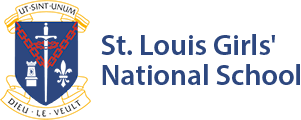St Louis GNS Board of Management
The Education Act 1998 sets out the responsibilities of boards of management in primary schools.
The 4-year term of office for boards of management of all primary schools started on the 1 December 2019
Our Board of Management Members 2022- 2023
- Mr. Packie McAdam -Patron’s Rep./ Chairperson
- Canon Paddy McGinn – Patron’s Rep./ Chaplain
- Mrs. Marietta Graham Reynolds – Principal/B.O.M. Secretary
- Mr. Michael O’Donnell-Community Rep./Treasurer
- Mr. Jim Greenan – Community Rep.
- Ms. Karen Thornton- Parents’ Rep.
- Mr. Sam Owens-Parents’ Rep.
- Ms. Níamh Harris -Teachers’ Rep./Recording Secretary
The board’s main function is to manage the school on behalf of the patron and for the benefit of the students and to provide an appropriate education for each student at the school. The board is accountable to the patron and the Minister for Education. The school principal is responsible for the day-to-day management of the school and is accountable to the board.
In carrying out its functions, the board must
- Follow the Ministerial policies
- Support the ethos of the school and be accountable to the patron for this
- Comply with the law and with any deed, charter, or similar instrument relating to the school.
- Consult with and inform the patron of decisions and proposals
- Publish the school’s admissions and participation policies, including its policy on expulsion and suspension of students and the admission and participation by students with disabilities or with special educational needs
- Ensure that the school’s admissions policy respects parents’ choices and the principles of equality, complies with Ministerial directions and considers the school ethos and the constitutional rights of all involved
- Comply with the school’s admissions policy in line with the Education (Admission to Schools) Act 2018. The Act aims to make the rules around admissions to schools more structured, fair and transparent.
- Regularly consider the teaching and learning in the school and ensure appropriate targets are set
- Ensure a School Self-Evaluation Report and School Improvement Plan is prepared each year and share a summary of the plan with the whole school community annually
- Observe the principles and requirements of a democratic society and promote respect for the diversity of values, beliefs, traditions, languages and ways of life in our society
- Make efficient use of resources (particularly the grants provided by the State)
- Consider the public interest in the affairs of the school and be accountable to students, parents and the community
- Use the resources provided by the State to help meet the needs of students with disabilities or special needs, including, if necessary, the adaptation of buildings or provision of special equipment
- Recognise the leadership roles of principals, deputy principals and assistant principals in the school as part of the goal to achieving high quality outcomes for students
- Co-operate with the NCSE in providing special needs education. Under the Education (Provision in Respect of Children with Special Educational Needs) Act 2022, a school must comply if the Minister directs a school to open a special needs class. The Department of Education has published frequently asked questions for schools about providing for children with special education needs.
How the board of management operates
All boards of management must follow the governance manual set by the Department of Education. The boards must follow the terms of the Governance Manual for Primary Schools 2019-2023 (pdf). The manual sets out the key activities of the Board.
Essentially, the board manages the school to provide all students with the best possible education.
Among its responsibilities, the board:
- Must appoint the principal, the teachers and other staff.
- Ensure that the school fulfils its functions as set out in the Education Act 1998
- Promote contact between the school, the parents and the community and must facilitate and give all reasonable help to a parents’ association in its formation and its activities
- Have overall responsibility for the school’s finances. It must ensure the school has comprehensive insurance cover, keeps proper accounts, which may be audited by the Department of Education and/or the Comptroller and Auditor General. Its annual accounts must be available to the patron and the school community.
- Ensure that child protection and welfare are considered in all of the school’s policies, practices and activities. The board must ensure that the Child Protection Procedures for Primary and Post Primary Schools are fully applied by the school.
- Ensure the school has a code of behaviour and an anti-bullying policy
- Comply with garda vetting requirements before employing, contracting or placing any person in contact with children or vulnerable persons
The board must have a procedure for informing parents about its activities – this could include an annual report. More information on boards of management is available on the website of the Department of Education.
Who is on the school board?
The composition of the board of management for schools with more than one teacher is
- Two direct nominees of the patron
- Two parents of children enrolled in the school (one mother and one father) elected by the parents
- The principal
- One other serving teacher elected by the teaching staff
- Two extra members agreed by the representatives of the patron, teachers and parents
There are certain criteria set out for choosing the 2 community representatives on the board of management.
- The people appointed must have a commitment to the ethos of the school.
- They must have skills that are complementary to the board’s requirements
- They must be interested in education but normally should not be parents of students currently attending the school or teachers currently on the staff
- The need to maintain a gender balance must be a consideration
The patron appoints the chairman of the board.
The rules set out in detail how the parents’ representatives are to be chosen, including the notice to be given to all parents and how replacements are chosen.

